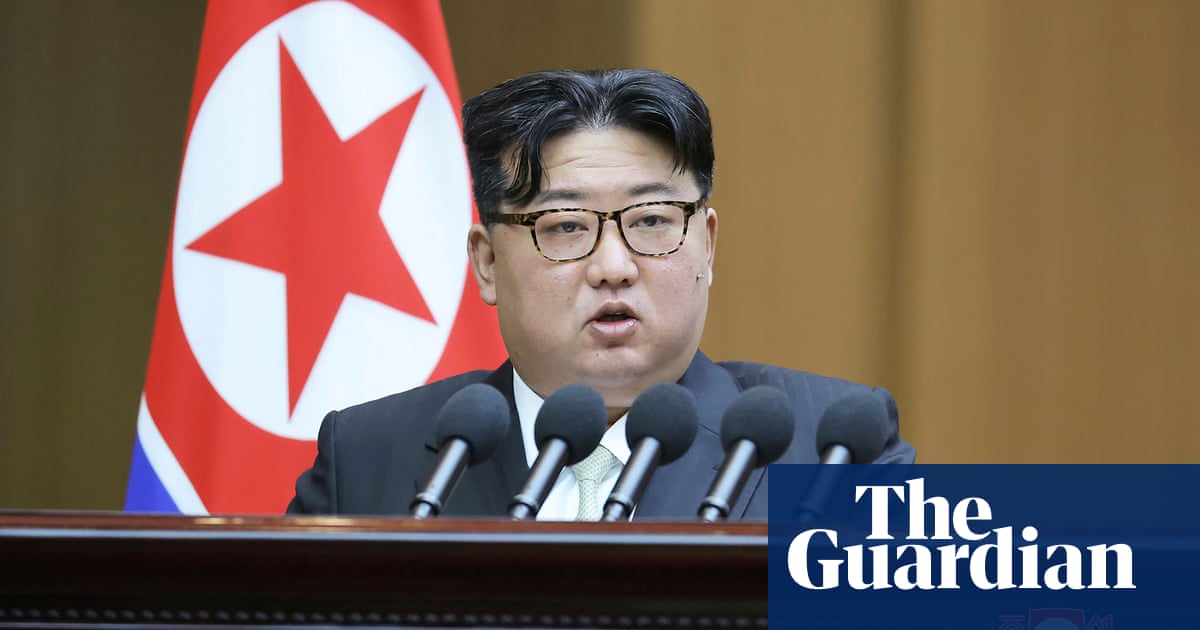North Korea’s leader, Kim Jong-un, has called for a change to the constitution to identify South Korea as the “number one hostile state”, ending the regime’s commitment to unifying the Korean peninsula.
In a speech to the supreme people’s assembly – North Korea’s rubber-stamp parliament – Kim said he no longer believed unification was possible and accused the South of attempting to foment regime change and promote unification by stealth.
In another sign of quickly deteriorating ties between the two Koreas, which ended their 1950-53 war with a truce but not a peace treaty – Kim said: “We don’t want war, but we have no intention of avoiding it.”



I’m not really all that surprised. Unification would likely mean the existing North Korean political elite would be criminals at best or dead at worst.
Might be an unpopular opinion, but I’m all for offering them cushy gilded cages to live out the rest of their lives. If that’s what it takes to end the regime, then go for it.
It’s not like there’s a long list of would-be dictators who are emboldened by the idea that they might land a sweet western mansion one day. There are so many other factors in taking over a country’s political system that this doesn’t register.
An example, but I don’t think East German leadership faced any consequences bar loss of power, after reunification.
Germany was never at war with itself and only kept apart by external states.
The only thing stopping Korea unification was a complete inability for either side to agree what unification would look like. Especially in the post-soviet world where Korea’s greatest allies have always been at best tolerant of them.